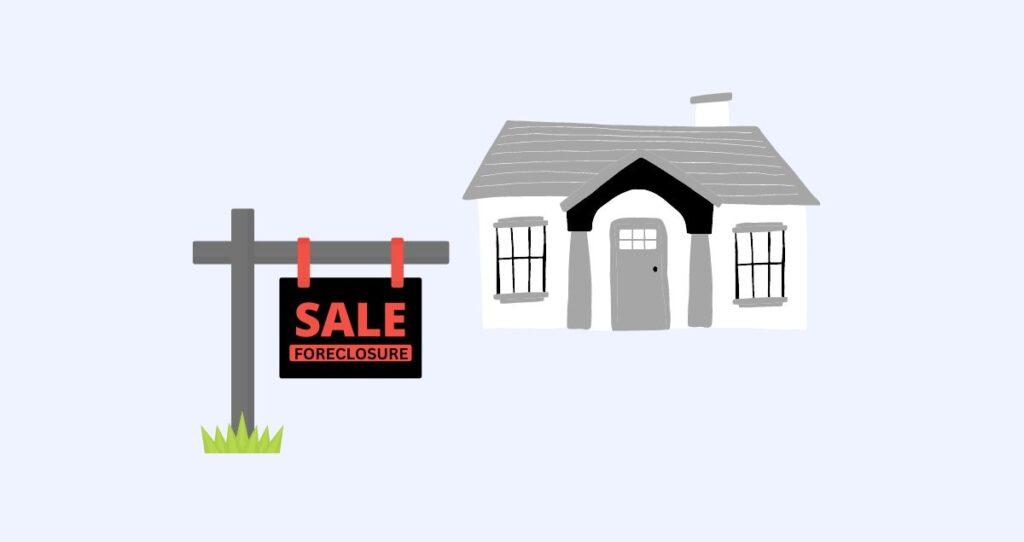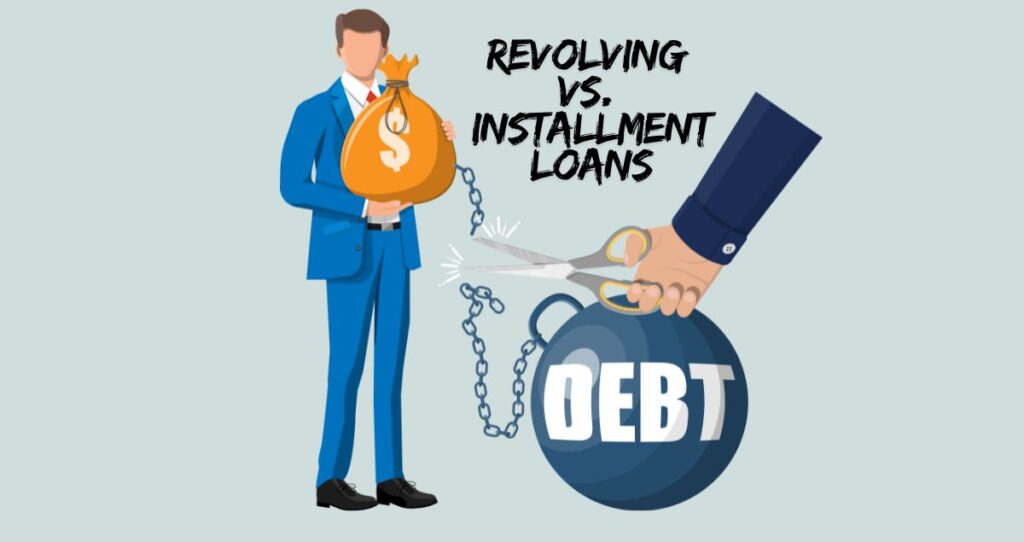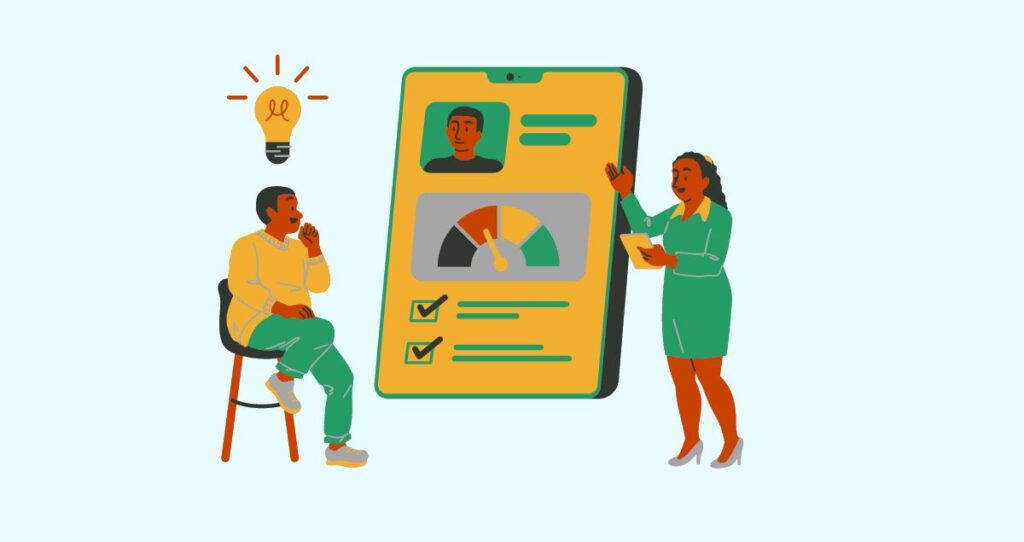Financing a home purchase with a mortgage comes with the risk of repossession if you fall too far behind on your mortgage payments. While the number of missed mortgage payments before repossession varies by lenders and by state, most lenders will initiate the repossession process after you have missed 120 days of consecutive mortgage payments.
In some jurisdictions, your lender might start the foreclosure process as earlier as 3 months or as late as 6 months depending on your initiative to resolve the matter. For example, if you did not respond to any of your lender’s loss mitigation letters and inquiries and did not show your willingness to resolve the matter, your lender might start the foreclosure process much earlier to minimize the risk after you have defaulted on your loan. This is why communicating with your lender is critical when facing financial hardships.
Key takeaways
- It takes about 4 months of missed payments before a repossession
- If you anticipate financial hardships soon or have fallen behind on your mortgage payments already, contact your mortgage servicer immediately. Depending on your financial situation, you might qualify for different programs such as forbearance or loan modification to make your monthly payments manageable and avoid foreclosure.
- You should also apply for different government assistance programs in your local area and seek professional help from housing counseling agencies designed to assist homeowners who are facing financial hardships.
- If you are experiencing long-term financial hardships, take action before you miss a payment. Some of the options you can consider include but are not limited to refinancing options, a normal sale of the property, a short sale, and a deed-in-lieu of foreclosure.
- A foreclosure will drop your credit score by as many as 180 points and will stay on your credit reports for 7 years
What is foreclosure and how does it work?
A foreclosure is a legal process through which a lender takes ownership of a property when the borrower fails to make their mortgage payments. The countdown to foreclosure begins when you miss your first mortgage payment, and as time passes without catching up, the consequences become increasingly dire.
When you miss a mortgage payment, it’s not an immediate game over. Lenders typically allow a grace period of 10 to 15 days, during which you can still make your payment. However, once that grace period ends, you enter dangerous territory. At this point, your mortgage is considered delinquent when it is 30 days past due, and the lender can start taking action to recover the debt.
Three types of foreclosures
Foreclosure processes differ from one state to another. The following are three types of foreclosures based on state, according to HUD. Keep in mind that regardless of the foreclosure being initiated against you, you will receive a notification beforehand about its process.
- Judicial Foreclosure. The lender will file a lawsuit against you in the judicial system and you will receive a notification in the mail asking you to make payment. Usually, you get 30 days to respond to the mail with a payment to avoid foreclosure. When you fail to meet the court’s demand, your property gets sold in the auction and a sheriff or local court oversees the auction process.
- Strict Foreclosure. With this type of foreclosure, the lender files a suit against you and you are given a timeline to make payments or respond. When you fail, the lenders automatically take the property.
- Power Foreclosure. This type of foreclosure happens when the mortgage includes the “power of sale clause”. After you have defaulted on your loan and have been notified but did not make payments during the timeline allowed by the lender, your mortgage company takes the property and sells it in the auction without going through the court.
This is what happens when you miss your first payment and the timeline that leads to foreclosure
Before the foreclosure process is initiated, there is a series of events that take place when you keep falling behind on your mortgage payments. The following is what you should expect to happen when you miss payments according to NOLO and N.Y. Department of Financial Services.
- 10-15 days Grace period. Most lenders give you 10 to 15 days grace period after the due date to make your payment. During this period, you only pay late fees which differ based on your lender and mortgage terms.
- 30 days past due. After 30 days without making a payment, your lender might report your late payment to credit bureaus and your credit score will take a hit. You will also get a notification from your mortgage servicer telling you to make payments to avoid foreclosure.
- 36 days past due. According to NOLO, federal mortgage servicing laws require that your mortgage servicer contacts you by phone to discuss the loss mitigation options no later than 36 days past due. You should also receive a call from your mortgage servicer every 36 days for every missed payment.
- 45 days past due. The lender will contact you in writing to address the loss mitigation options. During this time, the servicer will also give you information about different programs and personnel that can help you. You will also have the option to apply for forbearance, loan modification, etc.
- 45-60 days past due. The loan officer will send you a breach of contract letter during which you will be given 30 days to pay delinquent payments and fees, according to the N.Y. Department of Financial Services.
- 90 days past due and beyond. Most lenders will start the foreclosure process.
Your lender will start the foreclosure process if you do not take action
If you fail to pay your mortgage’s outstanding balance or struck a deal with your lender within the specified timeframe, your lender will file a lawsuit against you. This lawsuit initiates the formal foreclosure process, and you will receive a summons and complaint from the court. At this stage, it is crucial to seek legal advice to understand your rights and options.
Once the lawsuit, you will have an opportunity to defend yourself in court. This may involve negotiating with the lender and presenting evidence of extenuating circumstances. If you are unable to reach a resolution or fail to respond to the lawsuit, a judgment of foreclosure will be entered against you.
Following the judgment, a sale date for your property will be set. This is the final countdown, the point of no return. If you still haven’t resolved the situation, your property will be sold at a foreclosure auction. The proceeds from the sale will be used to pay off the outstanding mortgage debt, and any remaining balance will be distributed according to the state’s laws.
How many missed mortgage payments before repossession?
If you own a home and are facing financial hardships, you may be wondering how many missed mortgage payments before repossession or what happens if you fall behind on mortgage payments.
The specific number of missed mortgage payments before repossession can vary depending on several factors, including the terms of your mortgage agreement, the policies of your lender, and applicable laws in your jurisdiction. Lenders have the discretion to initiate foreclosure proceedings after a homeowner falls significantly behind on their payments.
Generally, your lender will not initiate foreclosure until you have missed 4 months of consecutive mortgage payments, according to the U.S. Department of Housing and Urban Development(HUD). The 120 days are designed to help you learn about different options you have to avoid foreclosure and apply for mortgage assistance programs that you qualify for. Most lenders initiate the repossession process after you have missed 3 to 6 payments on your mortgage.
Don’t wait for four consecutive missed payments before taking action
While most lenders wait for 120 days of missed mortgage payments before repossession, it is essential to recognize that even a single missed payment can be a red flag for lenders. This is because it indicates a potential inability or unwillingness to meet your financial obligations which affects your creditworthiness. It is in your best interest to prioritize timely mortgage payments to maintain a positive relationship with your lender and protect your homeownership and credit.
Be proactive when you are falling behind on your mortgage payments
If you think you are facing financial hardships or have missed a mortgage payment already, contact your mortgage servicer right away. Communicating with your lender shows your willingness to work out a mutually beneficial solution.
Lenders typically provide some leniency and offer grace periods for missed payments. During this period, which can last from a few days to a couple of weeks, you have the opportunity to rectify the situation by making the necessary payment.
What happens if you fall behind on mortgage payments?
Falling behind one mortgage payment will not cause you to lose your home. Being behind many mortgage payments, however, will lead to defaulting on your mortgage and might lead to foreclosure.
When you fall behind on mortgage payments, one of the first things that may happen is receiving a notice of default from your lender. This notice typically outlines the amount overdue and gives you a specific timeframe to bring the payments up to date. Ignoring this notice or failing to take action within the given timeframe can result in the lender initiating foreclosure proceedings.
The foreclosure process can vary from state to state, with some states having longer timelines and more extensive legal requirements. In general, if you continue to miss mortgage payments, your lender may file a lawsuit to take possession of your property. This can ultimately result in the sale of your home to repay the outstanding loan balance.
Related: How to avoid foreclosure on a home?
What to do when you are falling behind on your mortgage payments
It’s crucial to remember that falling behind on mortgage payments doesn’t have to be game over. By being proactive, seeking professional advice, and exploring available options, you can come up with a strategy to safeguard your home and get back on track with your mortgage payments. Strategies to safeguard your home include taking advantage of housing counseling agencies that specialize in offering guidance on budgeting, debt management, and negotiating with lenders. These agencies can provide you with valuable insights and connect you with local resources and assistance programs to help you navigate the financial challenges you’re facing.
Here is a list of 7 things to do when you are falling behind on your mortgage payments.
1. Reach out directly to your lender
Open communication is key in these situations, and lenders often have dedicated departments or programs designed to assist borrowers who are struggling to make mortgage payments. By proactively contacting your lender, you can discuss your situation and explore possible solutions together. Some lenders may offer temporary repayment plans, grace periods, or other alternatives that can help you catch up on missed payments without incurring additional penalties or legal actions.
2. Get advice from a housing counseling agency
These experts can provide you with personalized guidance on creating a budget that aligns with your financial situation and helps you prioritize your mortgage payments. They can also assist you in developing a debt management plan that allows you to make consistent payments while addressing any other outstanding debts you may have. Additionally, housing counseling agencies have experience in negotiating with lenders and can advocate on your behalf to potentially secure forbearance, loan modifications, or other arrangements that can make your mortgage payments more manageable.
You might also like: What to do when being evicted with no place to go?
3. Seek professional guidance
It’s important to research and understand any local resources or assistance programs available to homeowners in your area. Many states and municipalities offer programs that provide financial assistance, loan refinancing, or even grants to eligible homeowners who are at risk of foreclosure. These programs can vary widely, so it’s worth researching and contacting your local government or a housing counseling agency to find out what options might be available to you.
4. Consider a traditional sale
If you are falling behind on your mortgage payments, a traditional sale of the property might be your best choice. This option allows you to get out of your mortgage without repossession or experiencing further financial stress.
5. Rinance your mortgage
Is your mortgage terms unfavorable or you purchased a home when rates were extremely high and now you cannot afford your monthly payments? If so, refinancing your home will be a great way to lower your monthly payments and prevent foreclosure. The refinancing option allows you to get another loan at a much lower rate and favorable terms-making your monthly payments affordable.
Related posts:
6. Consider a short sale
If a traditional sale of the property is not a good option, consider a short sale. With a short sale, the lender allows you to sell your home for less than you owe. Keep in mind that your lender will be the one who approves the sale’s price and you might be required to pay the remaining mortgage balance.
7. Consider a deed-in-lieu of foreclosure
If you are struggling financially and have exhausted all other options besides a foreclosure, a deed-in-lieu of foreclosure might be your last hope. A deed-in-lieu of foreclosure is a fancy term in the mortgage industry that simply means “giving the house back to the lender”. With a deed-in-lieu of foreclosure, the title of the property is transferred to the lender in exchange for debt relief.
Read more: Can I give my house back to the bank to avoid foreclosure?
What happens if you are 3 months behind on your mortgage?
When you find yourself three months behind on your mortgage payments, it’s crucial to take immediate action to address the situation. By this point, you may be experiencing heightened anxiety and uncertainty about the future of your home. However, it’s important to remember that there are still options available to you to prevent foreclosure of your home.
Being behind on your payments for three months indicates that the risk of foreclosure is at its highest. That is why you need to act fast and explore every possible option and opportunity at your disposal.
Here are a few things to do when you are three months behind on your mortgage payments.
- Call your mortgage servicer right away. At this point, you have already received multiple communications from your lender. Even if you are three months behind and face the potential of foreclosure, the lender does not want to foreclose on you. This is because foreclosure is very expensive to lenders and they tend to avoid it as much as you do. For this reason, lenders are more likely to work with borrowers who show genuine effort and a proactive approach. Taking steps to communicate with your lender and seek assistance will significantly increase your chances of finding a solution.
- Explain your financial situation. By discussing your circumstances openly, you may be able to negotiate a temporary forbearance or loan modification to help you catch up on missed payments. It’s important to keep in mind that lenders have a vested interest in avoiding foreclosure, as it can be a lengthy and costly process for them as well.
- Apply for government assistance. You may want to explore government assistance programs designed to support homeowners facing financial hardship. Programs like the Home Affordable Modification Program (HAMP) or the Principal Reduction Alternative (PRA) may provide the relief you need to get back on track. Researching and understanding these programs can help you assess whether they are a viable solution for your specific situation.
How many months can you skip payments before you go into foreclosure?
When it comes to the number of months you can be behind on your mortgage before foreclosure becomes a genuine threat, there isn’t a definitive answer that applies to every situation. The specific timeframe can vary depending on factors such as your lender, the state you reside in, and the specific terms of your mortgage agreement.
However, as a general guideline, most lenders consider foreclosure as a potential option after three to six months of missed mortgage payments. According to the Consumer Financial Protection Bureau(CFPB), most lenders cannot start the foreclosure process until you are 120 days behind on your mortgage payments. This is not set in stone, and some lenders may initiate the foreclosure process earlier or later based on their policies and assessment of the borrower’s circumstances. How long it takes to reach the foreclosure date also varies by state.
It’s essential to keep in mind that even if your lender gives you a grace period of a few days, falling behind on your mortgage should never be taken lightly. Missing one payment can have severe consequences on your credit score and overall financial well-being. It can also put you on a slippery slope toward foreclosure.
How bad is it to miss one mortgage payment?
Missing a payment on your loan is not an advisable option. The good news is that missing one mortgage payment doesn’t automatically mean you’re headed for foreclosure. If you act quickly and communicate openly with your lender about your financial difficulties, there may be alternatives to foreclosure that you can explore together. This is why it’s crucial to be proactive and seek assistance as soon as you are having trouble making your mortgage payments.
When you miss a mortgage payment, the immediate consequence is usually a late fee. Lenders typically impose a grace period of around 15 days, so if you make your payment within that timeframe, you will likely only have to pay the late fee. However, if you fail to make the payment within the grace period or within 30 days, your missed payment might be reported to the major credit bureaus (Equifax, Experian, and TransUnion), which can hurt your credit score.
One late mortgage payment on your credit report can lower your credit score by as much as 180 points according to LendingTree. In addition to lowering your credit score, a late payment stays on your credit report for up to 7 years, according to Equifax.
Related: How long does information stay on your credit report?
Does missing a mortgage payment affect your credit score?
Missing one mortgage payment will lower your credit score once reported to major credit reporting agencies. Your payment history is one of the most critical factors that credit bureaus consider when calculating your credit score. To be more specific, payment history affects 35% of your FICO score and 40% of your VantageScore.
Missing one mortgage payment can lower your credit score by more than 100 points and as high as 180 points, depending on the overall health of your credit history. This significant drop in your credit score can make it more challenging to secure loans or credit in the future. Additionally, a late payment will lead to higher interest rates on any new credit you can obtain.
It’s important to note that the more recent the missed payment, the more damaging it can be to your credit score. Creditors tend to view recent late payments as more concerning than older ones. This is why addressing the issue promptly and catching up on any missed payments can help minimize the long-term impact on your credit health.
More credit and mortgage tips
How does a foreclosure affect your credit?
How to avoid foreclosure on a home?









